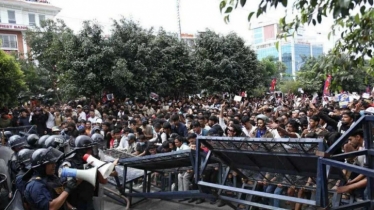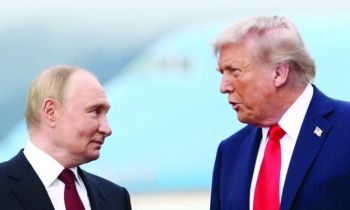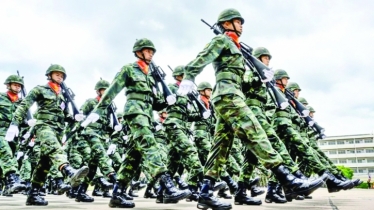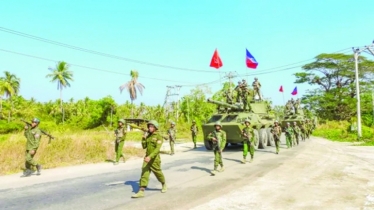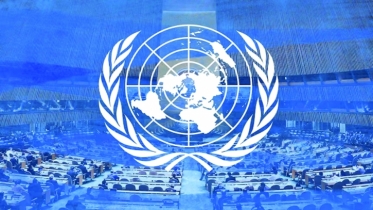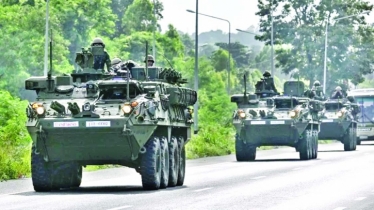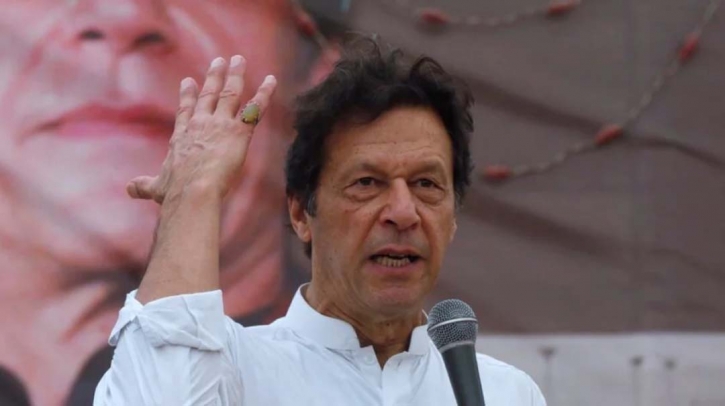
The die appears to have been cast in Pakistan. The political status quo is set to continue despite a clear lead for Imran Khan-backed independent candidates. Army chief General Asim Munir, the country’s arguably most powerful man, indicated which way the wind was blowing in his first comments following the ballotting on February 8.
Munir said the nation needs “stable hands and a healing touch” to move on from the politics of anarchy and polarization unsuited to the country of 250 million people. His comments appeared to single out Khan and hint at attacks on military installations when demonstrations broke out last year following the cricketer-turned-politician’s first brief arrest on corruption charges in May 2023.
Khan’s arrest triggered protests across the country with Khan’s supporters accusing the military of pulling the strings of the case. The anger directed at the military installations fuelled tensions between Khan and the military, which was already under fire for orchestrating his removal from power.
Three army commanders were fired and 15 others faced disciplinary action for inaction during the protests in what was described as the strongest action against the military’s own in decades. The punishments signaled zero tolerance for Khan’s backing within the military ranks and a resolve to crush support for Khan.
In a statement on February 10, Munir said Pakistan’s “diverse polity and pluralism” will be well-represented by a unified government of “all democratic forces imbibed with national purpose.” He called elections and democracy “means to serve [the] people” and not ends in themselves. Munir said that elections are not “a zero-sum competition of winning and losing” but an exercise to determine the people’s mandate.
Munir asked political leadership and workers to “rise above self-interests and synergize efforts in governing and serving the people which is perhaps the only way to make democracy functional and purposeful.” Munir said the people have “reposed their combined trust in the Constitution of Pakistan” while calling it “incumbent upon all political parties to reciprocate the same with political maturity and unity.”
Munir added as they move forward from “this national milestone,” they must reflect on where the country stands and where its rightful place should be. Munir wished the elections would bring in political and economic stability and prove to be the harbinger of peace and prosperity for Pakistan.
Munir’s statement followed former Prime Minister Nawaz Sharif’s call for other parties to join a coalition for ‘joint efforts to pull Pakistan out of its problems’. Sharif acknowledged to his supporters that they did not have enough of a majority to form a government without the support of others.
Sharif is believed to have met Pakistan People’s Party (PPP) leader Asif Ali Zardari as part of efforts to form the next government even as Gohar Khan, who succeeded Imran Khan as the head of the Pakistan Tehreek-e-Insaf (PTI), claimed they had secured 150 seats. Gohar Khan said the seats were enough to form a government.
A party or a coalition needs the support of 169 lawmakers in the 336-seat national parliament to form the government. The overall tally of seats includes 70 reserved for non-Muslim minorities mostly for Hindus, Christians, and women. Sharif and Munir’s hints of keeping PTI out of power came even as leading daily The Dawn’s election dashboard showed it has won 91 seats so far. PML(N) was trailing with 71 seats and PPP with 53 as results of 250 out of 266 seats were announced.
Among a series of disadvantages PTI faced was the loss of its election symbol at the last moment, which prompted it to field independent candidates. If the candidates it backed are not recognised as PTI in Parliament, it would be unable to make proportional nominations for the reserved seats giving PML(N) and its allies a decisive edge.
Imran Khan’s party did exceptionally well despite his imprisonment, criminal convictions, and curbs on holding rallies and open campaigning. Sharif earlier expressed confidence that his Pakistan Muslim League (N) or PML(N), widely seen as the king’s party, would win the elections while brushing off suggestions that they might not win an outright majority.
He changed his tone late on February 9, saying he would approach the PPP for a coalition. Sharif has been projected as the main contender for the country’s top post. He returned to Pakistan in October ending his four-year self-imposed exile to avoid a prison sentence. His convictions were overturned to pave the way for him to seek a fourth term in office in a reversal of fortunes for Sharif while his archrival, Imran Khan remained behind bars and was barred from contesting due to his convictions days before the election.
Imran Khan faces over 150 trumped-up cases to prevent him from making a comeback. His party made a remarkable comeback despite what has been described as “pre-poll rigging” or lack of a level playing field. A robust turnout, however, for Khan’s party frustrated attempts to consign PTI to irrelevance. Imran Khan’s party has lived to fight another day though the traditional political elite will join hands to keep him out of power at least for now.
Sameer Arshad Khatlani is a journalist and the author of the Penguin Random House book The Other Side of the Divide. A version of this article previously appeared in MyPluralist.

